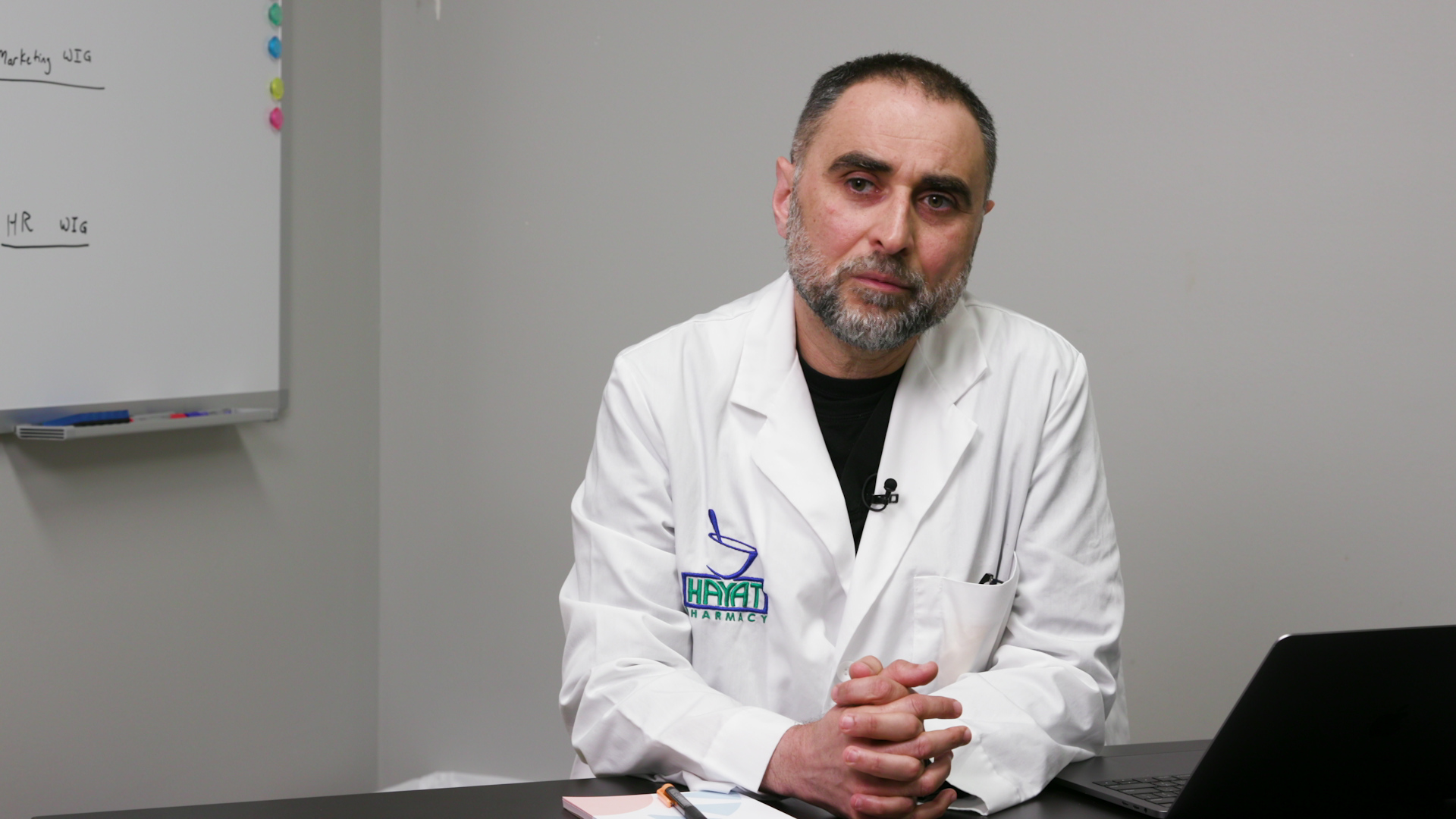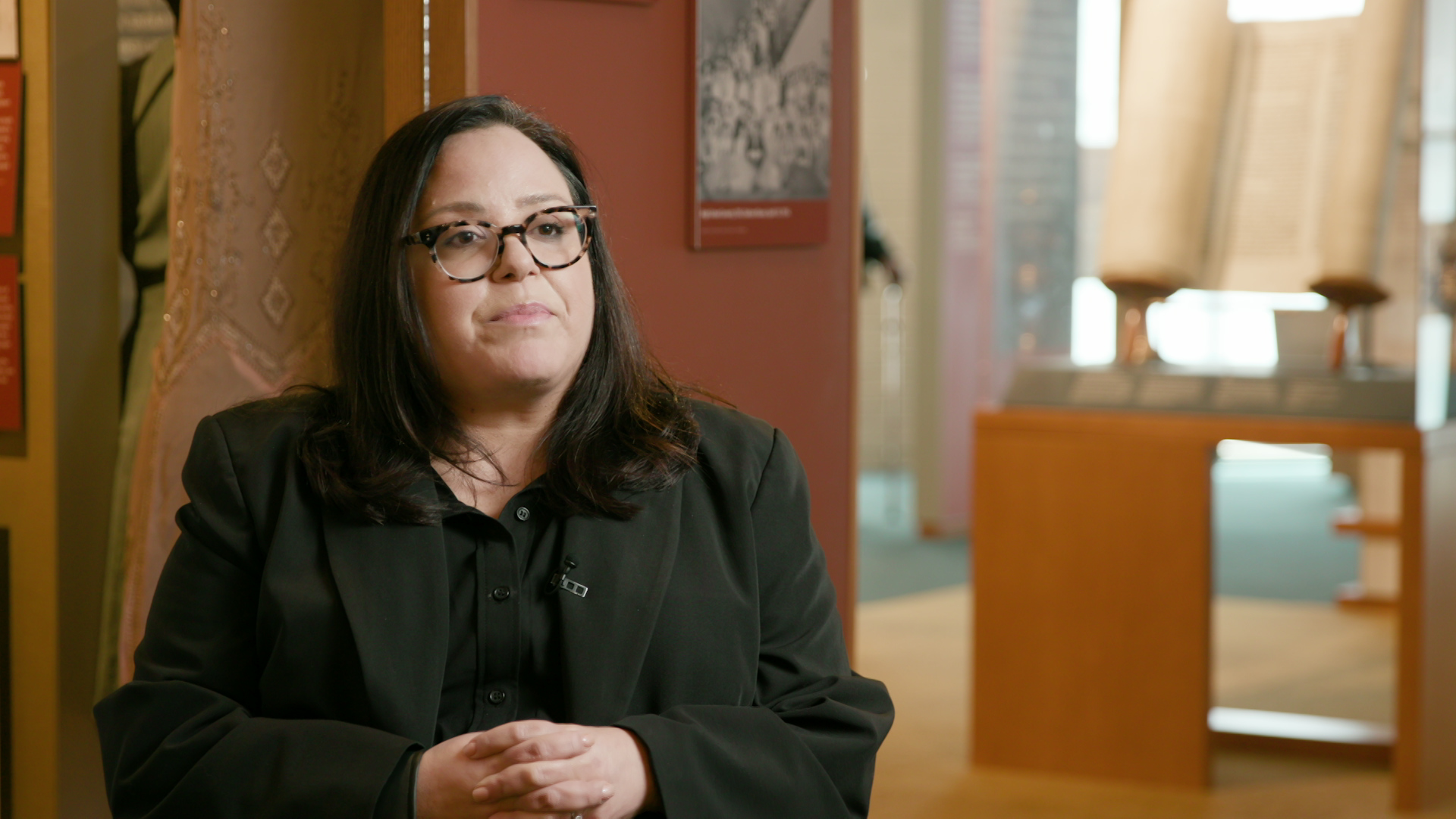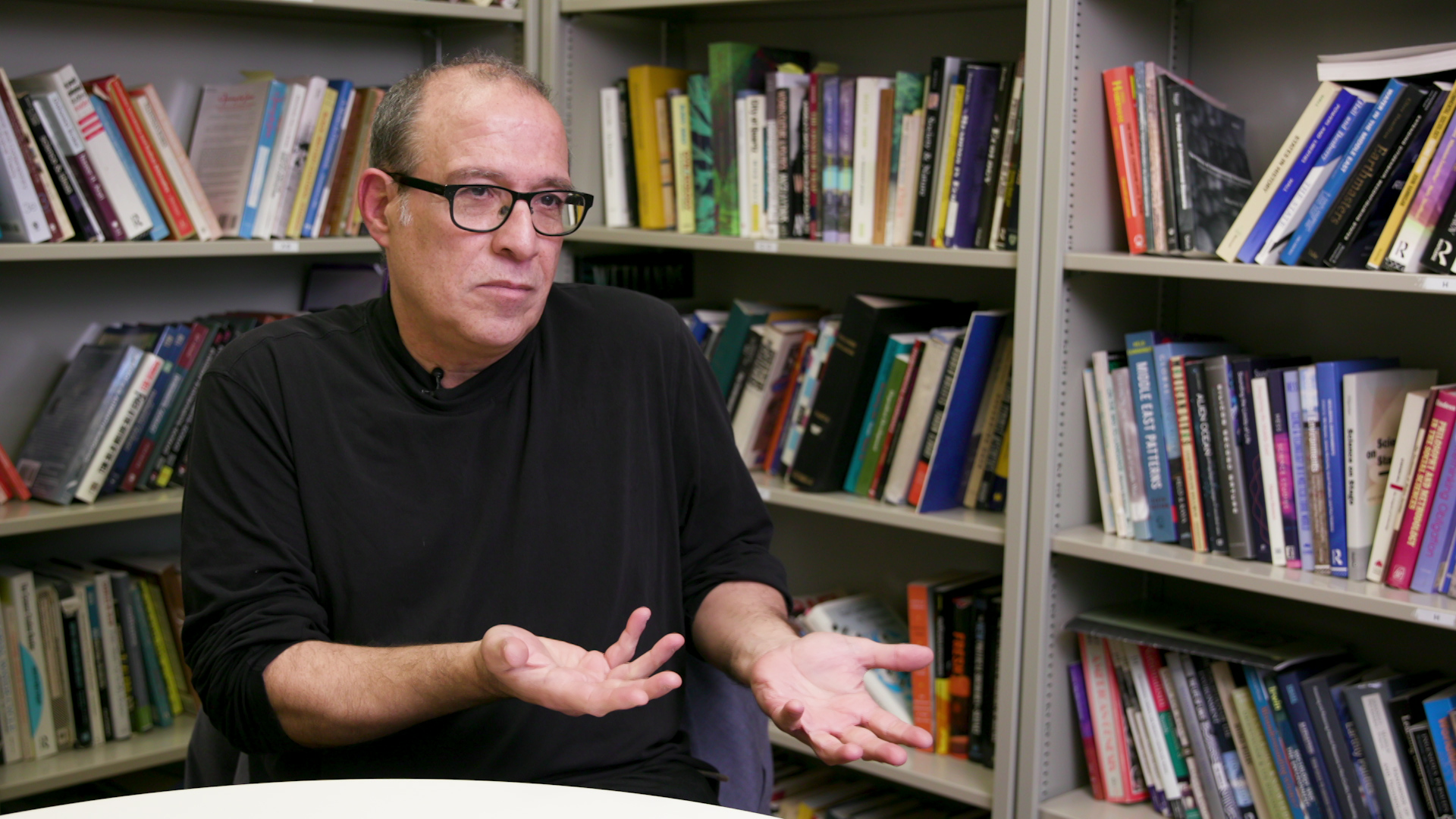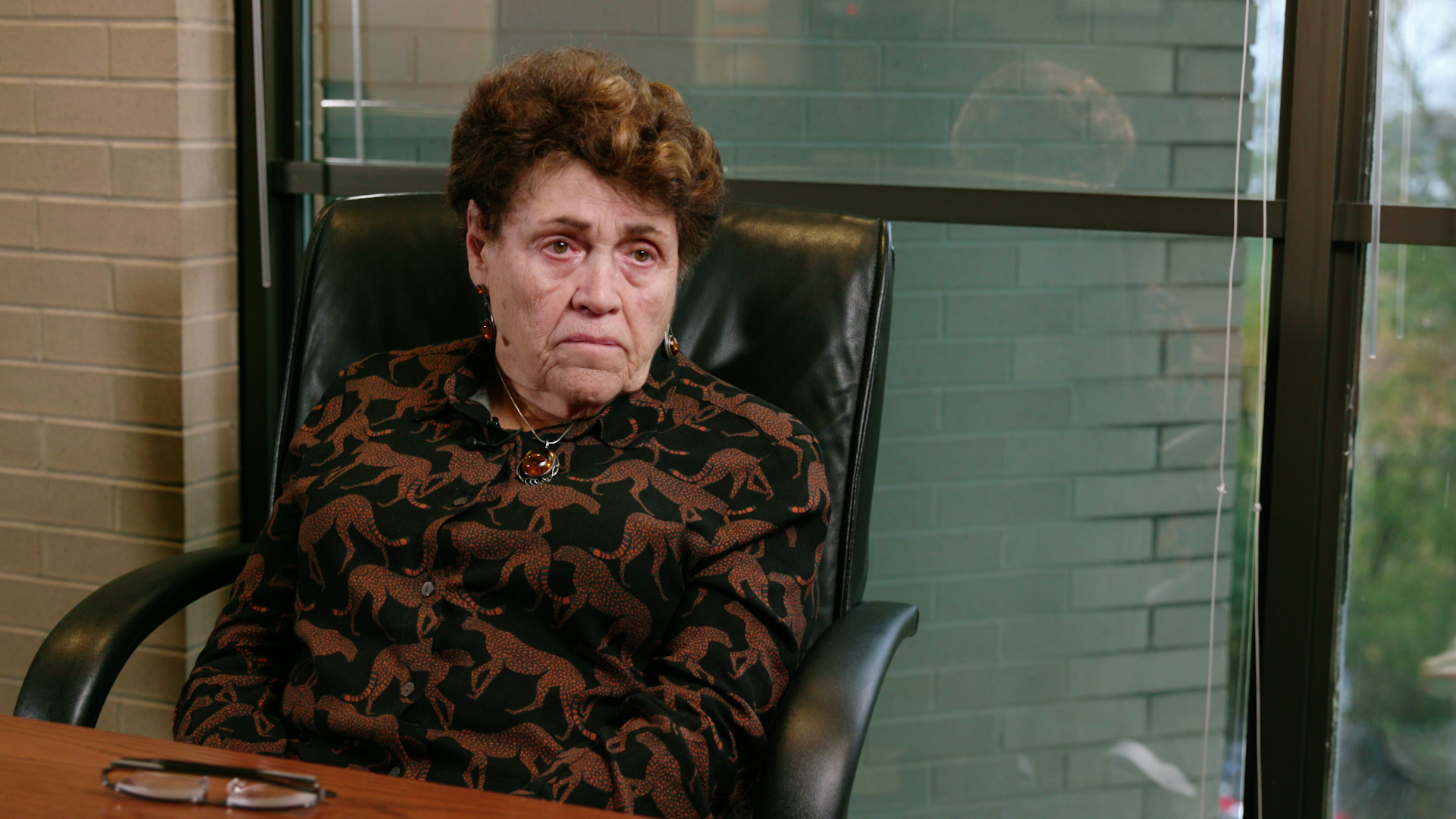The pain of Wisconsinites who have family in Gaza and Israel
Wisconsinites who have Israeli and Palestinian family ties share their anguish and fears following a month of rampant bloodshed and offer perspectives on the vitriol, distortions and horror of war.
By Aditi Debnath | Here & Now
November 10, 2023
Just over a month since the Hamas terrorist attack on Israel, Gov. Tony Evers called on Congress to increase funds for securing places of worship as threats surge against Jewish and Muslim communities. The war is personal and painful for the Wisconsin families.
“Every day they’re running into the bomb shelter,” said Miryam Rosenzweig.
“They send us a text message: ‘We’re still alive.’ And that’s pretty much all we can ask for at this point,” said Hashim Zaibak.
These Wisconsin families have close connections to the war.
Rosenzweig’s pregnant sister and baby niece live in Israel.
“I asked her, ‘How’s the two year old doing?,” Rosenzweig said. “She hears a siren, and she turns and she looks, and she knows that we’re going into the bomb shelter.”
“You just have to follow the news every day,” Zaibak said.
Zaibak follows the news every day because as a native of Gaza — home to Hamas — he hopes to make sure his sister and other family there are still alive.
Zaibak owns Hayat Pharmacy in Milwaukee and, fearing anti-Palestinian backlash, hired a security guard to patrol his business.

Hayat Pharmacy owner Hashim Zaibak is interviewed in Milwaukee on Oct. 24, 2023. He anticipates daily text messages from family in Gaza, who are trying to survive amid regular airstrikes. (Credit: PBS Wisconsin)
For Rosenzweig, president of the Milwaukee Jewish Federation, the vitriol cuts both ways.
“The hate that has been spewed in the last two weeks towards Jewish community — both as a community, individuals in our schools, on our campuses — has been horrific to watch,” she said. “And the silence of the condemnation of it is deafening.”
Though the Palestinian terror organization Hamas rained down horror on Israelis, Rosenzweig says support for Palestinian civilians is clear among members of her organization.
“Overwhelmingly, they believe in the right of Palestinian self-determination,” Rosenzweig said. “What people are misunderstanding is that the fight isn’t with the Palestinian people — this war is about neutralizing Hamas.”

Milwaukee Jewish Federation President Miryam Rosenzweig is interviewed in Milwaukee on Oct. 24, 2023. She stays in close contact with family in Israel, who regularly seek shelter from rocket attacks. (Credit: PBS Wisconsin)
But it’s about more than that, says UW-Madison professor Samer Alatout.
“It’s not Hamas-Israeli war,” he said, “it’s an Israeli war against the Palestinians that is at heart genocidal.”
Alatout is a geopolitical expert of the region and a native of Palestine.
“And it’s about ethnic cleansing, and it’s about stealing the land,” he said.
Alatout said mass media perpetuates the idea that the conflict is about religion instead of about the land — and that idea has dangerous echoes in history.

Samer Alatout is a professor in the Department of Community & Environmental Sociology at UW-Madison. A native of Palestine, he says conflict in the region is about land and not religion. (Credit: PBS Wisconsin)
“The media sometimes portrays Palestinians as the bad guys, and that’s exactly what happened to the Jews before World War II,” said Zaibak.
Zaibak is not the first one to liken the situation to World War II.
As she visits the Jewish Museum Milwaukee, Edie Pump said her personal experience also tells her the conflict is not about religious differences. As a Holocaust survivor, she remembers her family hiding in Uzbekistan.
“It was a Muslim community and they were protective of the Jews,” Pump recalled. “I had a Muslim midwife deliver me. When I was sick, a Muslim midwife took care of it and they protected my parents.”

Edie Pump is a Holocaust survivor who lives in Milwaukee. She recalls how a Muslim community in what is now Uzbekistan protected her family while they were hiding, and compares terrorism by Hamas to those experiences.
(Credit: PBS Wisconsin)
Still, the Hamas charter written in 1988 calls for the end of Israel and its Jewish population. Pump compared the terror of Hamas to Nazi Germany.
“Just like what happened in the Holocaust,” she said.
While Hamas – designated by the U.S. as a foreign terrorist organization — governs over the Gaza Strip, innocent Palestinians are caught in the crossfire.
“Is Hamas Palestine? No. But is the P.N.A. — the Palestine Authority — Palestine? No.” Alatout said.
It’s a complex history inflamed by current bloodshed. And, according to Rosenzweig, social media can distort the truth.
“People should stop getting their information from social media,” she said. “If you could fit it in a text or in a post, chances are it’s not a very thoughtful argument.”
But Zaibak said he thinks social media can help keep people up to date — and it’s often younger people disseminating it.
“I feel that it’s a different generation. I feel that the Gen Z-ers here in the United States are very empathetic with the Palestinian cause,” he said.
“Education is the key. Learn about what’s going on. Learn about the differences between people, and accept people’s differences,” said Pump.
Through it all, Zaibak awaits a daily text message from his family, telling him they’re alive, while Miryam Rosenzweig’s two-year-old niece hears the sirens and runs to the bomb shelter.
 Passport
Passport











Follow Us